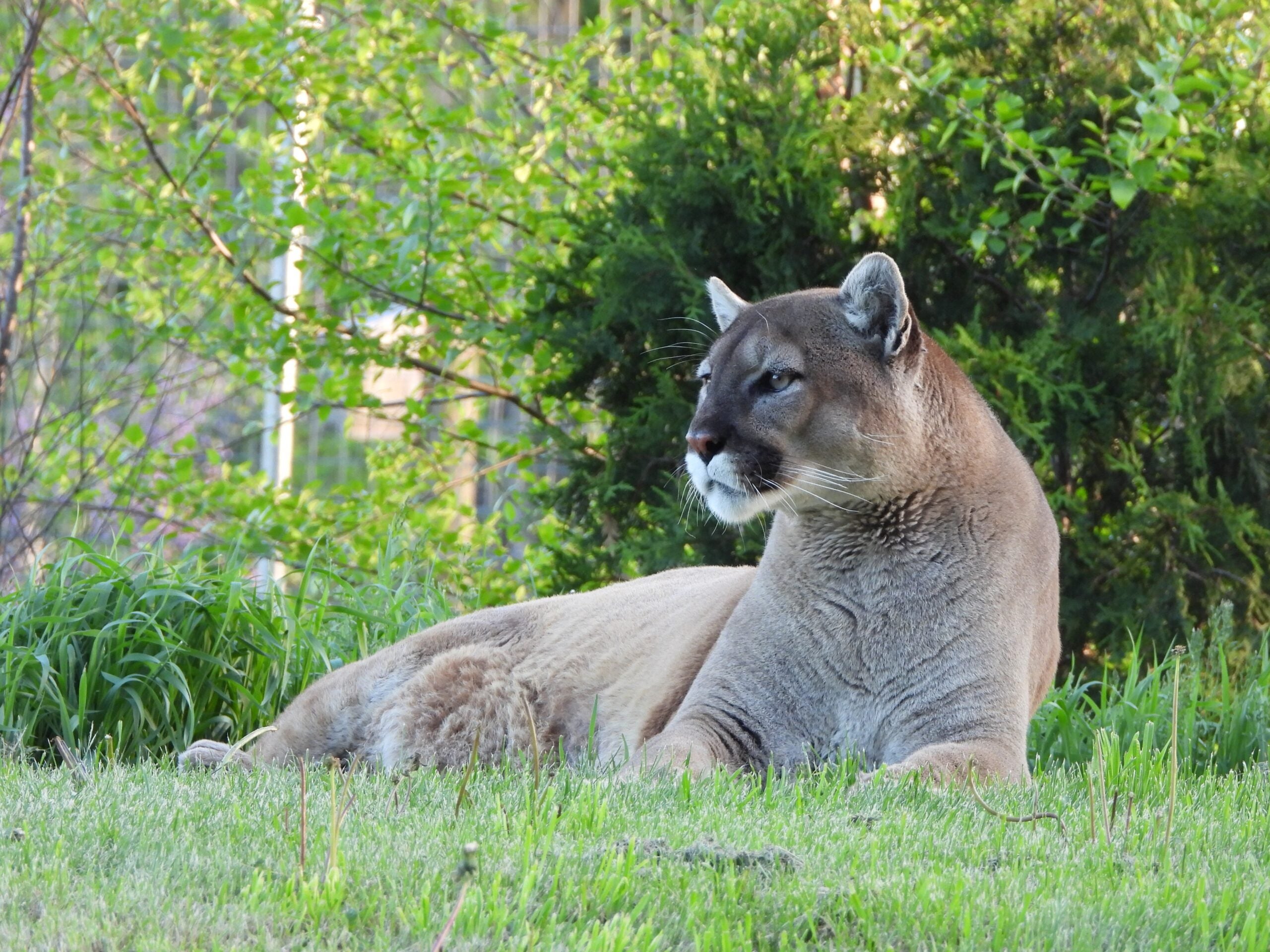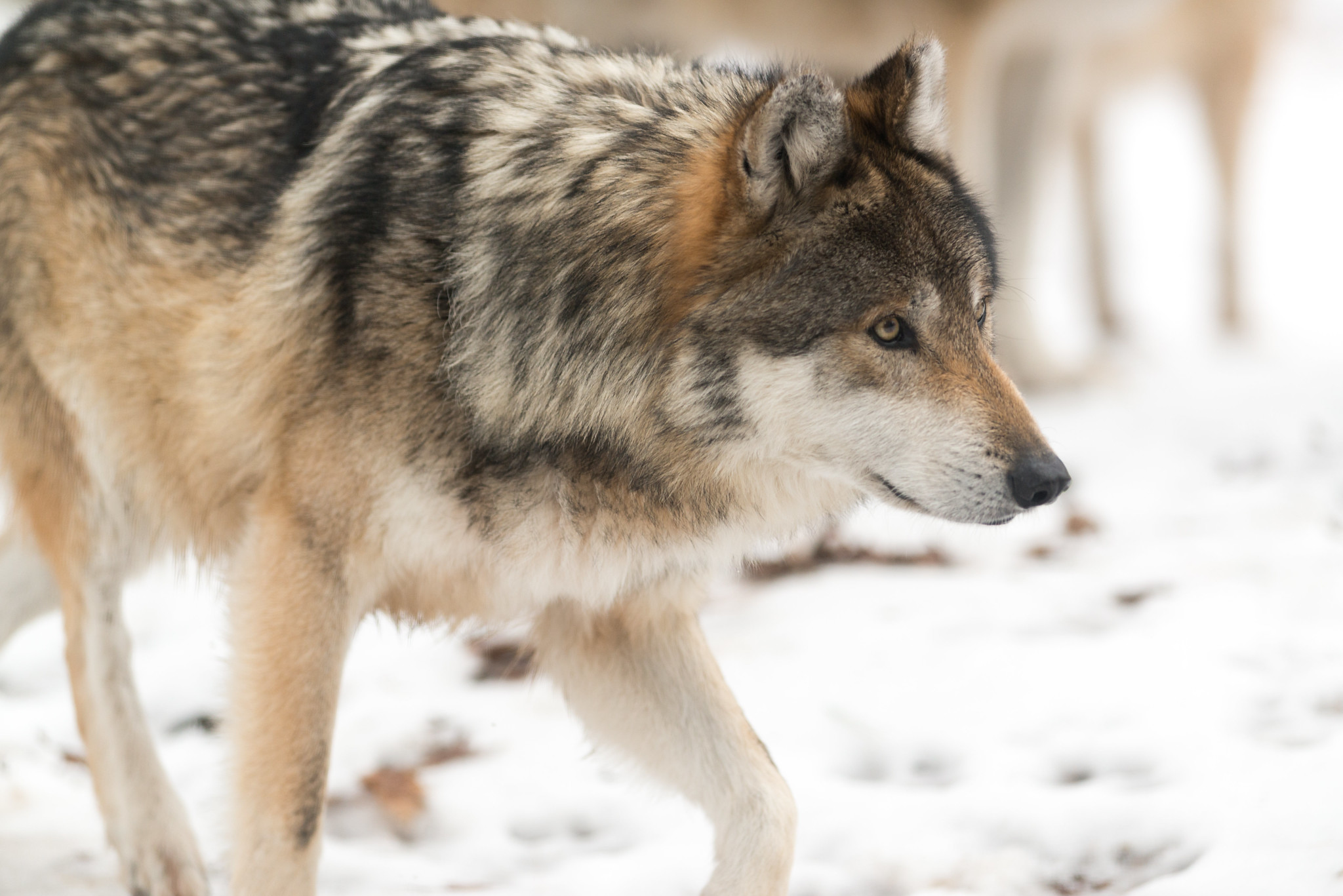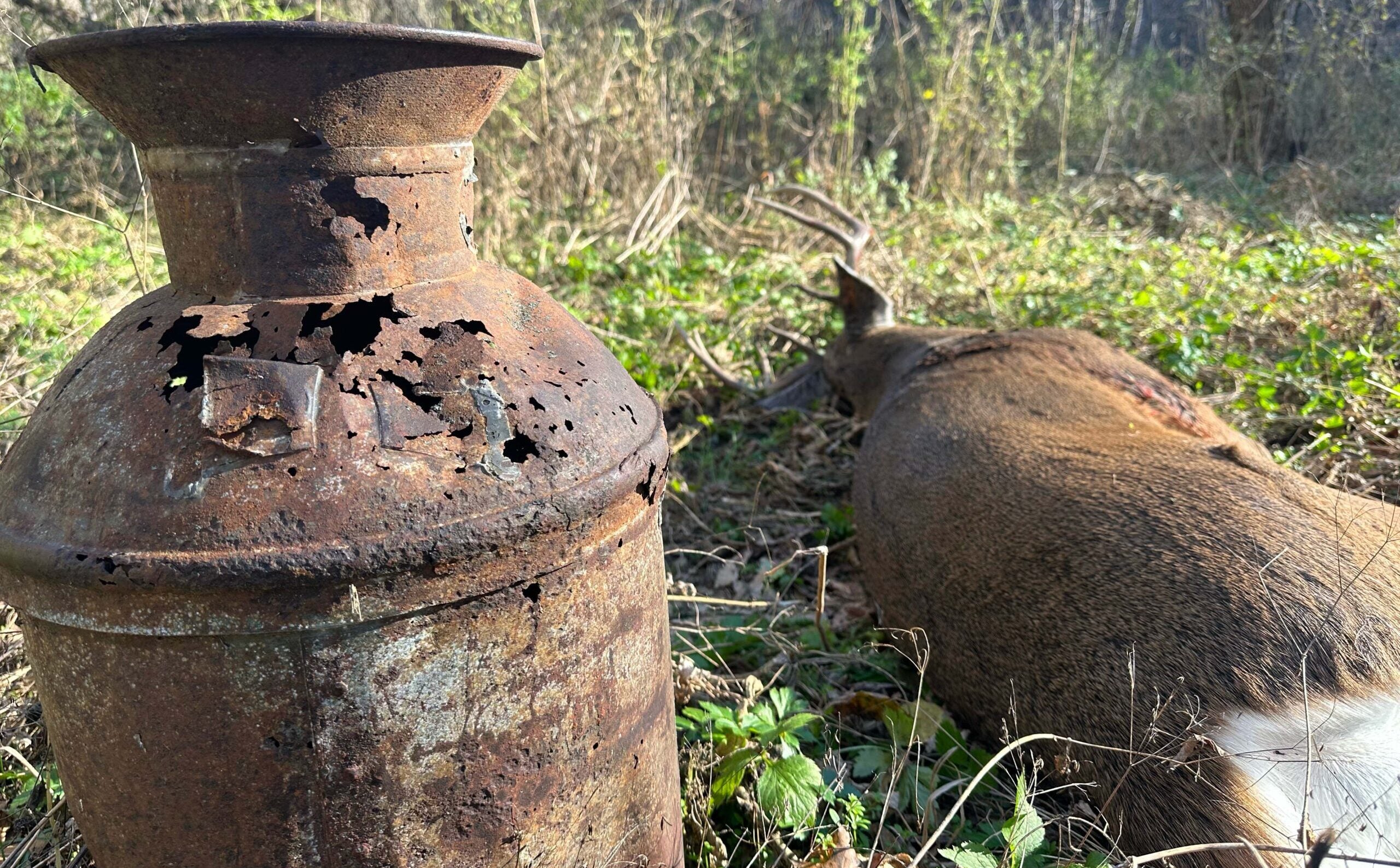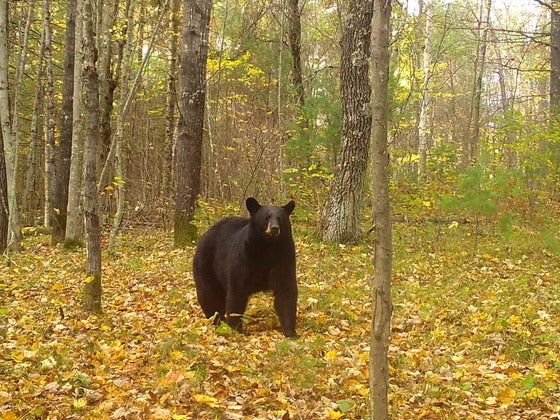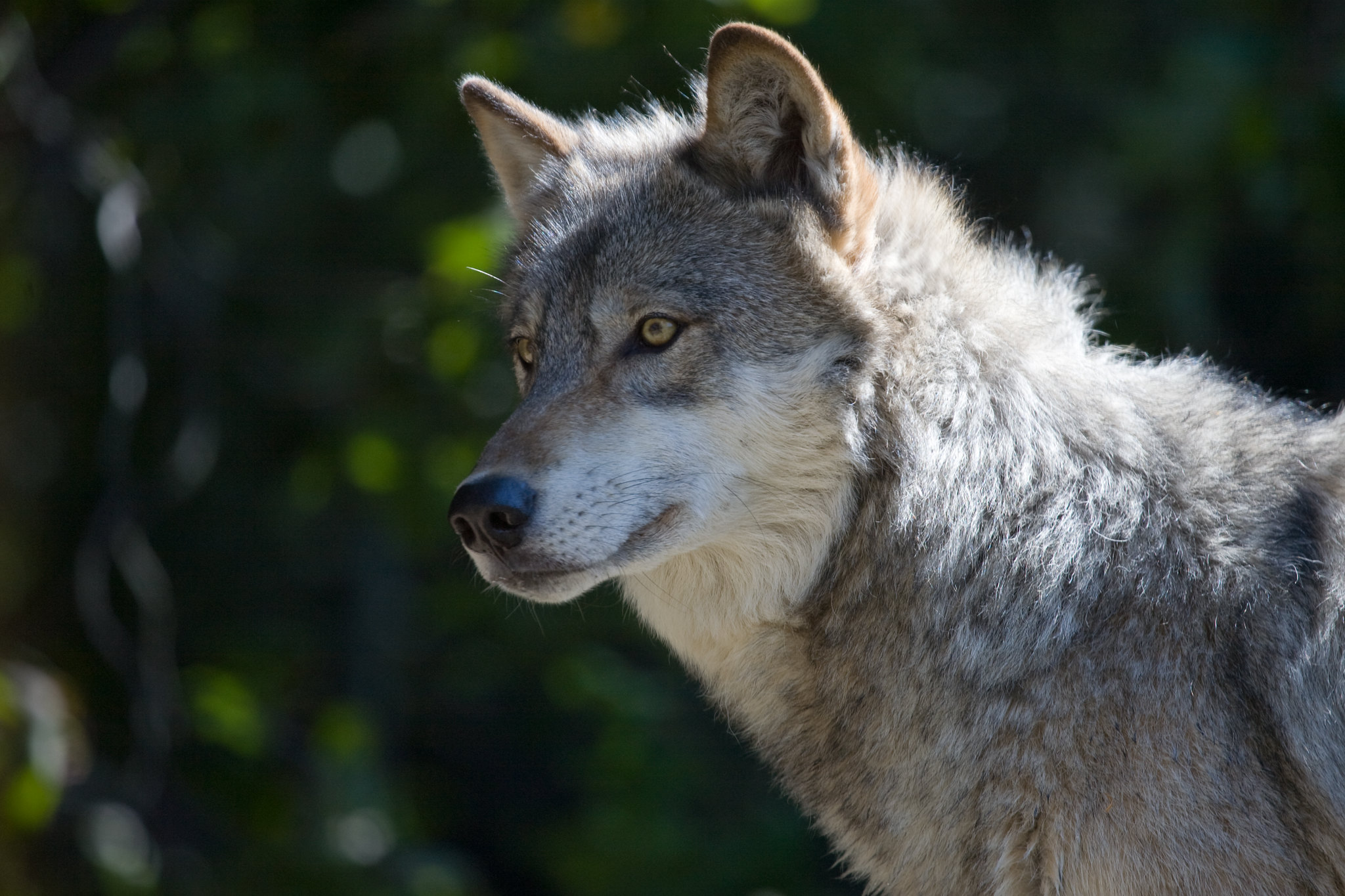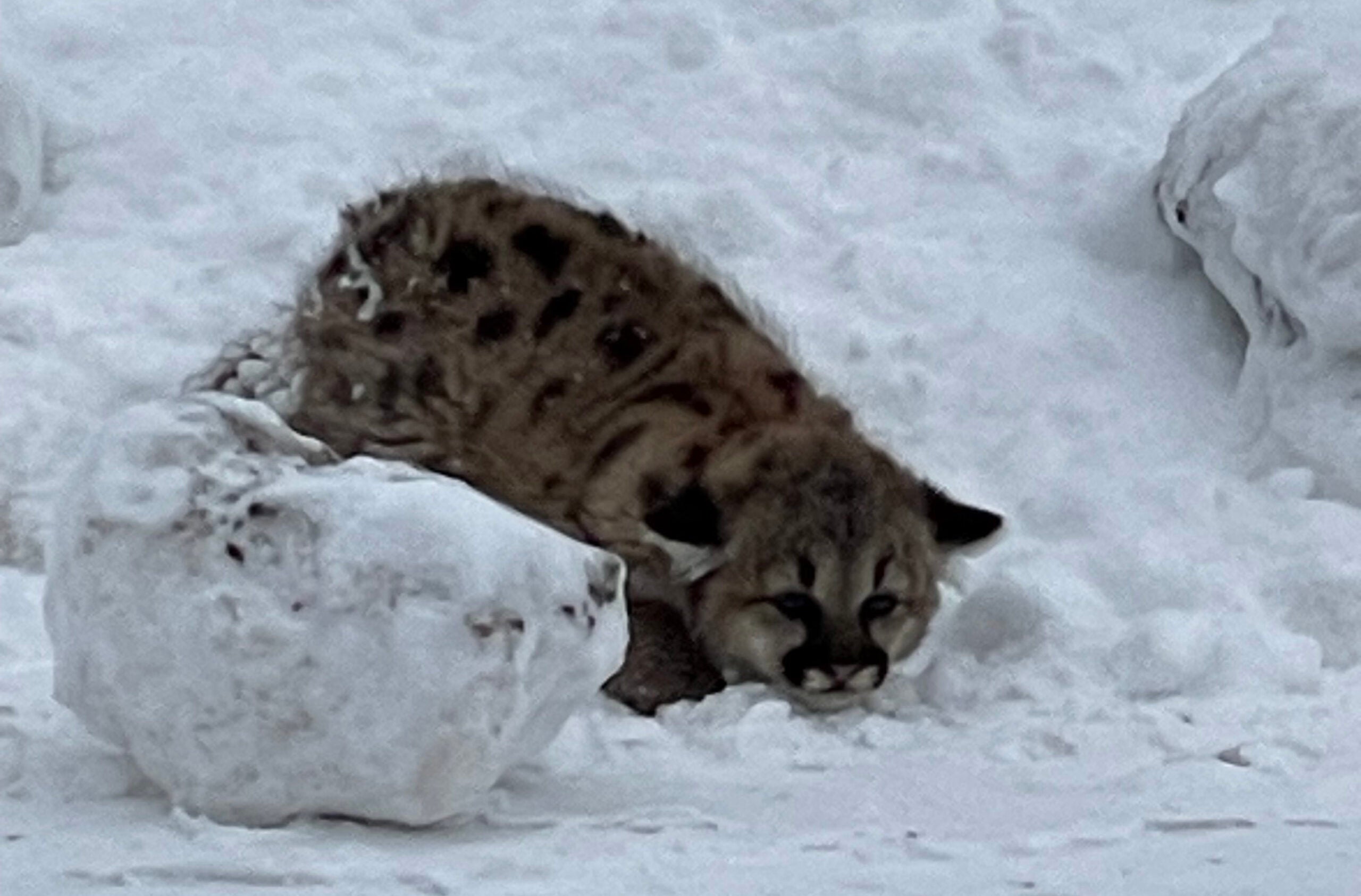A cougar was killed by a bowhunter in Buffalo County last weekend, according to the Wisconsin Department of Natural Resources.
It was likely the first time a cougar was killed by a hunter in the state in about 115 years, said Randy Johnson, a large carnivore specialist with the DNR.
Johnson said the man was hunting deer with a bow from a tree stand on Saturday when he saw movement.
News with a little more humanity
WPR’s “Wisconsin Today” newsletter keeps you connected to the state you love without feeling overwhelmed. No paywall. No agenda. No corporate filter.
“The last thing I think he was expecting was a cougar,” Johnson said.
When he realized what he was seeing, and that the animal was at a relatively close distance, the hunter told investigators he made motions at the cougar, but it did not retreat.
“Somewhere in that sequence, he felt his safety was threatened and made the decision to shoot it,” Johnson said.
After killing the cougar, the man “commendably” reported the incident to the DNR, Johnson said. Game wardens and conservation biologists conducted an investigation and turned their findings over to the Buffalo County District Attorney.
“After careful review and consideration, no charges will be filed,” according to a statement from the DNR.
Johnson said the cougar was a male that weighed 128 pounds and was approximately 2 years old. He said its body is in the possession of the DNR, and a necropsy is planned. He hopes DNA testing will establish the breeding population where it originated.
Cougars are a protected species in Wisconsin. They are native to the state, but the entire population was killed off by the early 1900s. Although rare, sightings have increased over the last two decades. The DNR confirms there are now an average of 15 to 20 sightings a year.
Johnson said a cougar was spotted on a trail camera in Buffalo County just days before the recent killing. He said it was almost certainly the same animal. Johnson said it was the 25th verified sighting this year.
But he said that doesn’t mean there are dozens of the animals wandering the state.
“That’s not 25 cougars — that’s a handful of cougars observed multiple times,” he said.
Johnson said there’s no evidence there’s a breeding population of the animals in Wisconsin.
“We have never documented a female, we have never documented kittens,” he said.
There’s never been confirmation that a cougar has established a territory in the state.
“Nonetheless, the trend of these verified observations is increasing and has been for a few years, and I expect that trend will continue,” he said.
When biologists have been able to get DNA information about the cougars in the state either through testing scat or blood left at the site of deer kills, they have determined the animals were young males who have left the Black Hills of South Dakota, the closest area with a breeding population of cougars. Johnson said it is typical for young males to disperse looking for new territory.
“At that point, they seem to keep wandering,” Johnson said. “When they enter Wisconsin, they don’t stay still, they keep wandering. If they don’t find a mate, they don’t stop.”
According to the DNR, young males have been recorded traveling up to 1,600 miles.
Johnson said Wisconsin has habitat to support a breeding population of cougars, and it is possible that some will settle here.
“I guess time will tell, but I certainly don’t expect it in the next few years,” he said.
Wisconsin Public Radio, © Copyright 2025, Board of Regents of the University of Wisconsin System and Wisconsin Educational Communications Board.

